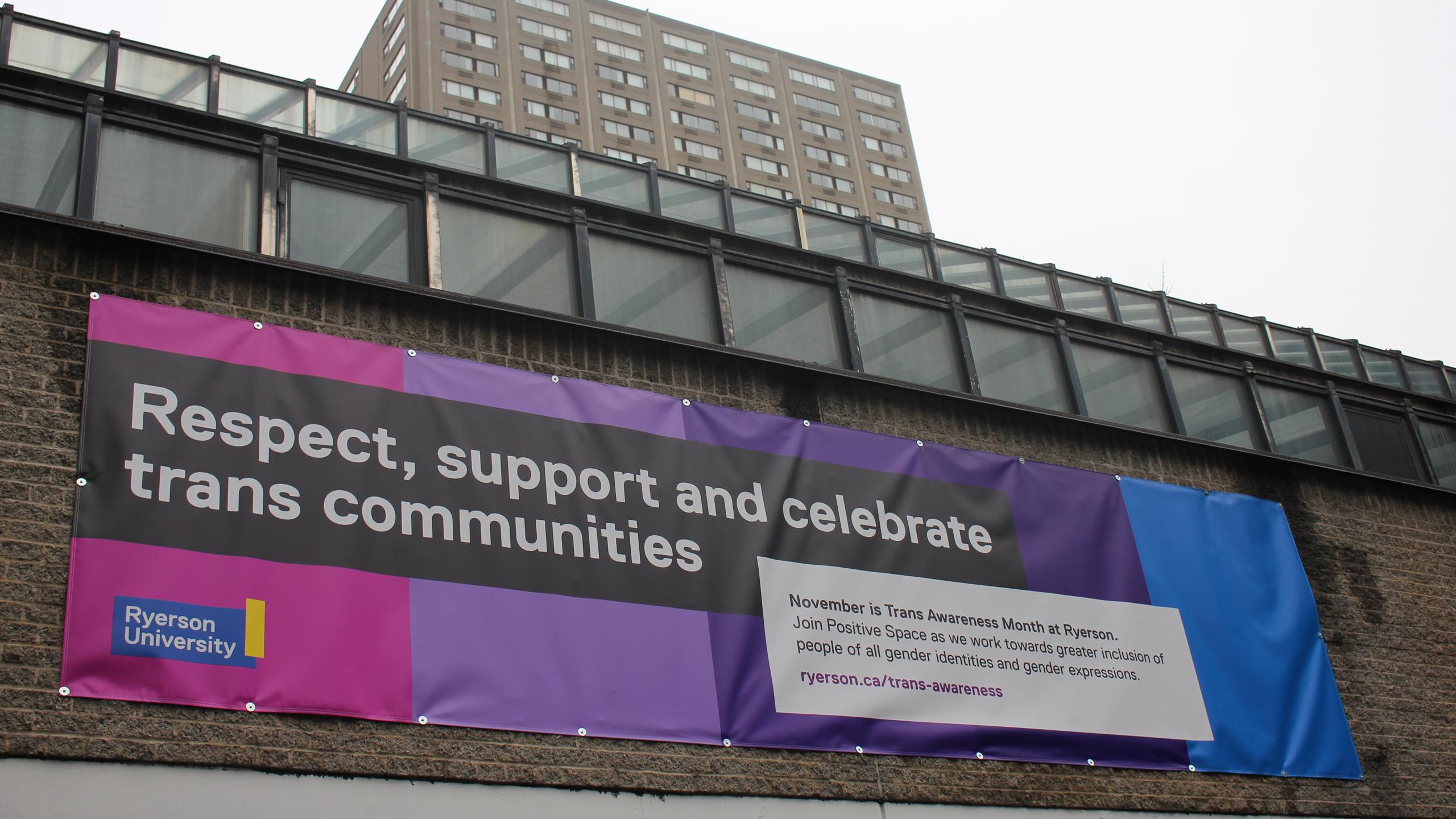By Natalie Michie
Inclusive sexual healthcare is hard to come by for trans folks. In a 2012 Trans PULSE study, two thirds of trans people who use emergency care reported having to educate their emergency care provider on their gender identity.
In clinics, there’s no guarantee whether a doctor will be welcoming to trans people and respectful of trans-inclusive language. This can make it very intimidating for trans people to seek out sexual health treatment, and could lead to health providers mishandling situations with gender-diverse folks.
Being misgendered and being denied care such as hormone therapy is something that is too often a reality for trans people, said coordinator of Ryerson’s Trans Collective, Robert Molloy.
“We are constantly having to prove that we exist. A lot of trans folks I know are scared to go to doctors because they’ve been told, ‘you’re not real,’” said Molloy. “It’s really disheartening.”
Seeking trans-inclusive primary care alone can be traumatizing for trans folks, but seeking proper sexual health-care is even worse, according to Molloy.
“Trans sex-ed doesn’t exist,” said Molloy, who had to change doctors seven times before being administered hormones. “Doctors go to enough years of medical school, yet they don’t talk about transness. I don’t want to have to educate my doctor.”
Trans folks often dread sexual health services that are routinely received by cis people out of fear that their healthcare provider will not accept their identity.
“I’m a transmasculine person, and I’m probably going to have to go to a gynecologist one day. I’m terrified to do that kind of thing,” said Molloy. “And I know [for] trans femme folks, having to check things like prostate cancer can be really dysphoric.”
Finding sexual health clinics that are trans-inclusive is not easy. Molloy said that even if a clinic claims to be inclusive of everyone if it does not specifically say ‘trans-inclusive’, it’s not necessarily safe for trans folk.
“If [clinics are] not explicit about being trans-inclusive, trans folks assume they are implicit,” he said. “We assume they are not safe.”
There are some sexual health clinics in Toronto that are explicitly trans-inclusive and provide healthcare directed toward LGBTQ patients.
Hassle Free Clinic, Sherbourne Health Centre, Church Wellesley Medical Clinic, Planned Parenthood Toronto and Parkdale Queen West Community Health Centre are some of the clinics that are specifically trans-inclusive. But because trans people are an underserved demographic, trans-inclusive clinics have excessive wait times.
Map by Skyler Ash
The Hassle Free Clinic, which operates on a first-come-first-serve basis, often has people lining up outside before the clinic opens.
“We say the doors open at 9 a.m. when the morning shifts start, and numbers go out at 9 a.m., but people have busy lives and we can’t stop them from showing up at 8 a.m.,” said Jane Greer, director at Hassle Free Clinic.
Other trans-inclusive clinics such as Sherbourne Health and the Church Wellesley Medical Clinic are difficult for trans people to get into because there aren’t enough doctors to treat every trans person. Molloy said he wasn’t able to get into either centre, and that the wait time is over a year for both.
“[The way trans people] know how to get our healthcare is through the grapevine and through our friends,” said Molloy. “That’s how I found out about Queen Street West Community Health Centre.” Molloy credits the Queen Street West Community Health Centre with saving his life, and recommends every Ryerson student goes there.
To tackle underrepresentation of trans-inclusive clinics, Molly said the solution is simple: make every clinic trans-inclusive. This starts by implementing trans-inclusive language, which Hassle Free Clinic took the initiative to do years ago, according to Greer.
“Many years ago the clinic made a very conscious decision and invested some money and human resources in looking at our services from top to bottom and by that I mean, [in] what we call ourselves,” said Greer. “Language is powerful, and we made sure our language was inclusive of trans people.”
“I know immediately walking into a doctors office if it’s safe or not,” said Molloy. “If I don’t have a choice to choose my own preferred pronouns and preferred name, I know I can’t be there.”
There are resources that aim to educate healthcare workers on how to be trans-inclusive in their treatment, provided by outlets such as Rainbow Health and Planned Parenthood Toronto. However, there are not enough resources to solve the widespread lack of trans education throughout healthcare.
Greer said she would like to see more intensive training for healthcare providers on the matter. “From a health-care perspective, when HIV first hit, there was a lot of focus on trying to train doctors to do HIV care. It was a crisis, and it appears to me that that same type of crisis seems to exist now, with trans people waiting for care and [not] getting good care,” she said.
Molloy said implementing trans-inclusive language in clinics across Canada would be a step towards ending discrimination against trans people.
“Trans healthcare ties in with trans education, trans housing and trans mental health,” said Molloy. “It all connects in the end.”













Terri Molloy
Great topic. There’s much research needed…I believe the right people can get together to make a difference to advocate for this segment of the population.